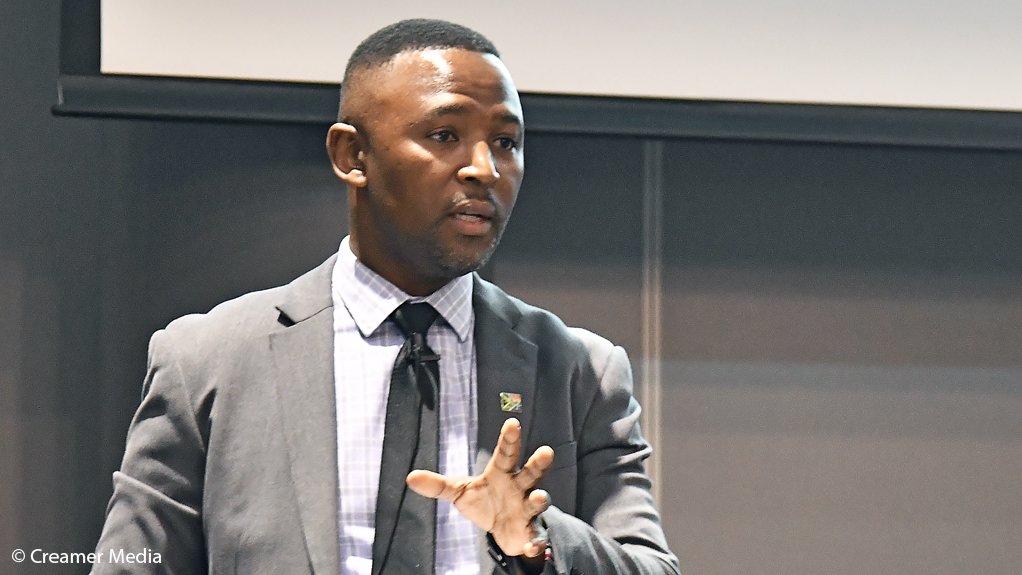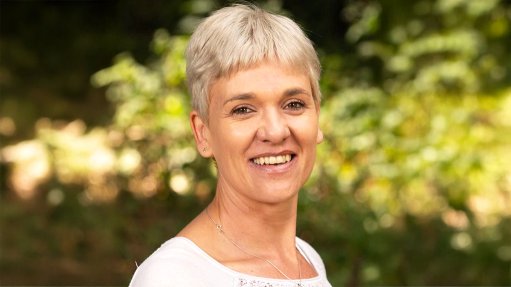Heavy haul industry business models to be modelled under 4IR – Monakali
The official 40-page-long International Heavy Haul Association (IHHA) Vision 2030 Strategy will be published next month.
The strategy, which took about 15 months to compile, is expected to unpack what the future will look like for the global heavy haul industry in terms of customer experience, operations, rolling stock, maintenance, infrastructure, energy, information and the skills of the future.
Underpinned by the Fourth Industrial Revolution (4IR) as a foundation, the strategy would result in the industry having safe, competitive, responsible, reliable, integrated and intelligent heavy haul systems powered by Rail 4.0, Transnet Freight Rail (TFR) GM Brian Monakali said this week.
Monakali is the outgoing chairperson of the board of directors of the IHHA and led the development of the strategy with representatives from the IHHA’s ten member countries.
He explained that, following its publication, the strategy would outline intelligent and smart solutions that make use of the effective integration of technologies, systems, assets and people.
“The vision aims to address global heavy haul challenges like improving customer experience, reducing logistics costs, navigation under the 4IR, providing additional rail capacity in a cost-effective manner and safety.”
To support and achieve this vision, while also meeting customer expectations, Monakali cited operations as one of the key themes of the strategy.
KEY THEMES
Automatic train operations are expected to become a main feature, as per the outcome of an IHHA conference, in Norway, last month, and the outcome of the strategy work group, Monakali said.
Considered a “success factor”, technology will be used to, among others, control trains to ensure operations according to their design and profile, while also providing feedback on train performances and ensuring minimal disruptions to services.
Further, touching on safety, Monakali explained how, going forward, the heavy haul industry would enhance the current predominant administrative and procedural control of safety to effectively use engineering and design to anticipate and determine potential failure modes.
While heavy haul operations had experienced a steady decline year-on-year in train derailments, he lamented that it had also been estimated that between 50% and 60% of derailments were caused by aspects relating to human error.
“This is why we need to start using technology to detect these failure modes. We need engineering to come up with methods of eliminating these potential failure modes and mostly make sure that we can have a technical system that does the detection and the control of some of the safety risks,” he explained, adding that people must be there to “fix [infrastructure] where [it] needs to be fixed”.
It is projected that, by using technology, at least 50% of potential failures can be eliminated
In terms of the maintenance of rolling stock and infrastructure, the strategy will see the implementation of predictive to prescriptive maintenance strategies to enable faster repair times, ultimately improving the reliability and availability of railway operations.
Information, meanwhile, will be a valued asset that improves customer service and result in an improvement in customer service, operational efficiency and safety.
Moreover, considering that the heavy haul industry generally uses a lot of energy to move trains, the strategy will see the global industry introduce a new generation of more energy efficient locomotives.
This, and intelligent traffic management systems, would be needed to optimise the energy use, with automatic train operations as an enabler, Monakali said.
“The use of energy efficient systems, as well as excess electrical regenerative energy will be put to use or stored for use for either the local community, transferred back to the Eskom grid or for other components,” he elaborated.
More research is, however, needed in the area of ensuring that the industry has storage units large enough to handle the amount of energy that trains generate.
Going forward, trains are also anticipated to become longer and heavier in an attempt to reduce the cost of operations.
“The view is that, as far as capacity is concerned, we know that carrying more units in a train reduces operating costs and that’s going to remain the competitive edge of heavy hauling,” Monakali noted.
In this respect, TFR intends to launch aheavy haul train with 375 wagons later this year.
Lastly, while there was no doubt that technology and automation would be used to perform most of the tasks currently performed by humans, Monakali explained how, as far as heavy haul operations go, the idea was to use technology to “inspect and discover potential failures and inspect the condition of the assets”.
Once completed, this would result in people intervening when it came to fixing and eliminating the root causes of potential failures.
He further emphasised that leadership was expected to play a significant role in this area and highlighted that business models in the heavy haul industry would, going forward, need to be modelled under the 4IR.
Article Enquiry
Email Article
Save Article
Feedback
To advertise email advertising@creamermedia.co.za or click here
Comments
Announcements
What's On
Subscribe to improve your user experience...
Option 1 (equivalent of R125 a month):
Receive a weekly copy of Creamer Media's Engineering News & Mining Weekly magazine
(print copy for those in South Africa and e-magazine for those outside of South Africa)
Receive daily email newsletters
Access to full search results
Access archive of magazine back copies
Access to Projects in Progress
Access to ONE Research Report of your choice in PDF format
Option 2 (equivalent of R375 a month):
All benefits from Option 1
PLUS
Access to Creamer Media's Research Channel Africa for ALL Research Reports, in PDF format, on various industrial and mining sectors
including Electricity; Water; Energy Transition; Hydrogen; Roads, Rail and Ports; Coal; Gold; Platinum; Battery Metals; etc.
Already a subscriber?
Forgotten your password?
Receive weekly copy of Creamer Media's Engineering News & Mining Weekly magazine (print copy for those in South Africa and e-magazine for those outside of South Africa)
➕
Recieve daily email newsletters
➕
Access to full search results
➕
Access archive of magazine back copies
➕
Access to Projects in Progress
➕
Access to ONE Research Report of your choice in PDF format
RESEARCH CHANNEL AFRICA
R4500 (equivalent of R375 a month)
SUBSCRIBEAll benefits from Option 1
➕
Access to Creamer Media's Research Channel Africa for ALL Research Reports on various industrial and mining sectors, in PDF format, including on:
Electricity
➕
Water
➕
Energy Transition
➕
Hydrogen
➕
Roads, Rail and Ports
➕
Coal
➕
Gold
➕
Platinum
➕
Battery Metals
➕
etc.
Receive all benefits from Option 1 or Option 2 delivered to numerous people at your company
➕
Multiple User names and Passwords for simultaneous log-ins
➕
Intranet integration access to all in your organisation




















